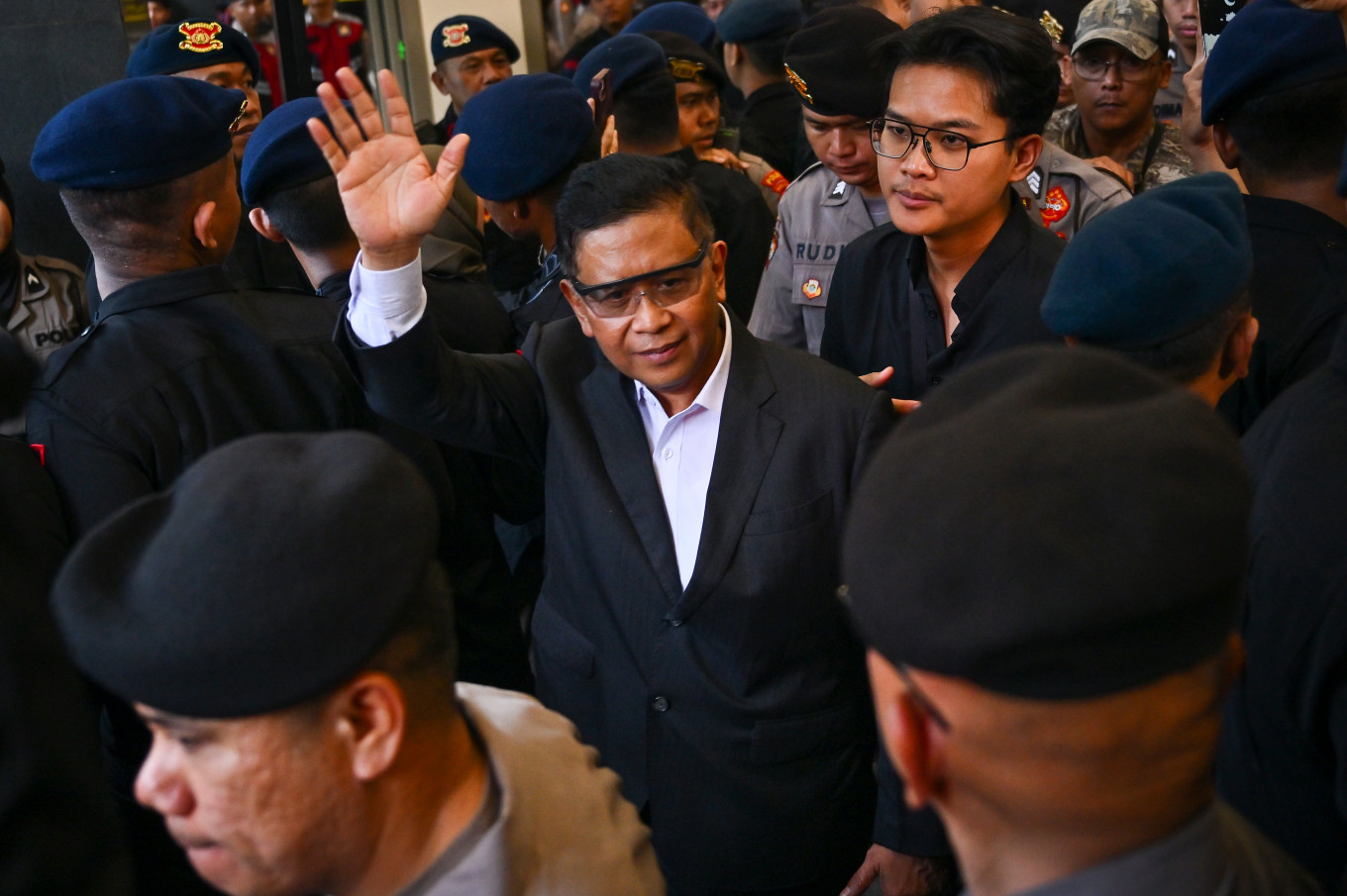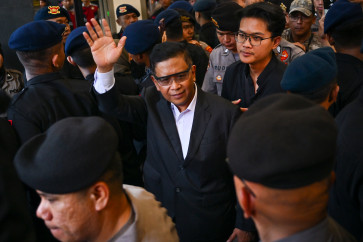Popular Reads
Top Results
Can't find what you're looking for?
View all search resultsPopular Reads
Top Results
Can't find what you're looking for?
View all search resultsAmnesty, abolition: Presidential prerogative or political theater?
The amnesty for Hasto and pardon for Tom are political signals hinting at a strategy to tame the legal system for the sake of stability, power consolidation and a re-engineered elite consensus.
Change text size
Gift Premium Articles
to Anyone
 Indonesian Democratic Party of Struggle (PDI-P) secretary general Hasto Kristiyanto (center) waves to crowds on July 25 after hearing the verdict for his trial at the Corruption Court, Jakarta. The panel of judges found him guilty of bribery and sentenced him to three years and six months in prison and a fine of Rp 250 million. (Antara/Bayu Pratama S)
Indonesian Democratic Party of Struggle (PDI-P) secretary general Hasto Kristiyanto (center) waves to crowds on July 25 after hearing the verdict for his trial at the Corruption Court, Jakarta. The panel of judges found him guilty of bribery and sentenced him to three years and six months in prison and a fine of Rp 250 million. (Antara/Bayu Pratama S)
P
resident Prabowo Subianto's decision to grant amnesty to Indonesian Democratic Party of Struggle (PDI-P) secretary general Hasto Kristiyanto and a pardon to former trade minister Thomas Lembong, approved by the House of Representatives, is a complex political signal.
This move, while constitutionally sound, sends a powerful message that could redefine national politics, challenge the principle of legal supremacy and shake the foundations of constitutional democracy.
Constitutionally, the President's authority to issue amnesty and pardon is legitimate, as stipulated in Article 14(2) of the 1945 Constitution. From a legal standpoint, the decision is well-grounded. However, politically, it appears to be a shortcut: A non-judicial resolution for legal cases with clear political undertones.
While the graft cases involving Hasto and Tom, both deemed as political enemies of the previous administration, may be viewed as political criminalization, they still require critical scrutiny. Rather than reinforcing the legal system, this decision demonstrates the executive branch's use of power based on political calculations and the President's subjective judgment. Even when framed as a constitutional act, such decisions raise fundamental questions about the integrity of Indonesia's legal order.
Historically, pardons in Indonesia have been used as tools of statecraft to ease armed conflict, foster national integration and restore stability. This practice began with Emergency Law No. 11/1954 and continued through various presidential decrees in response to regional rebellions like DI/TII, PRRI and Permesta.
During the Reformasi era, president BJ Habibie and president Abdurrahman “Gus Dur” Wahid issued decrees to annul political charges against opposition figures and release political prisoners, aiming for national reconciliation and human rights. More recently, president Susilo Bambang Yudhoyono granted amnesty to former Free Aceh Movement (GAM) combatants as part of the Aceh peace accord, and president Joko “Jokowi” Widodo granted amnesty to Baiq Nuril, a victim of the controversial Electronic Transaction and Information (ITE) Law, on grounds of justice and humanity.
Throughout history, the use of amnesty has been a reflection of the state's response to conflict and historical wounds, balancing law with politics. Yet, every such decision must be based on ethical considerations, not merely power calculations.


















